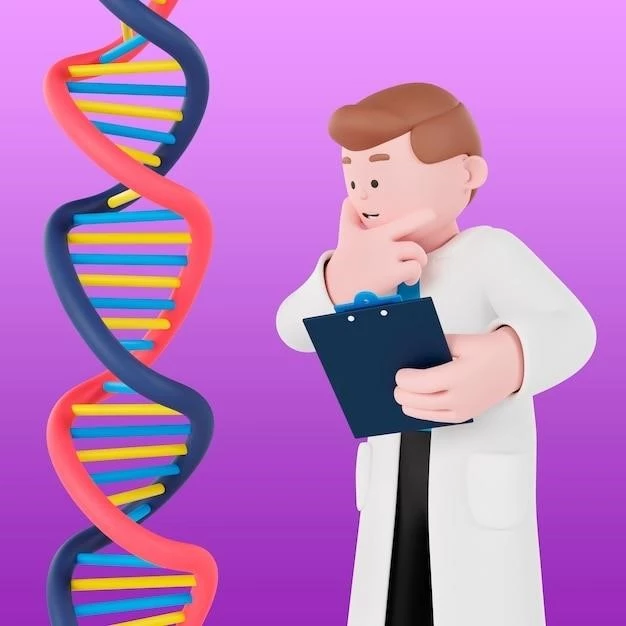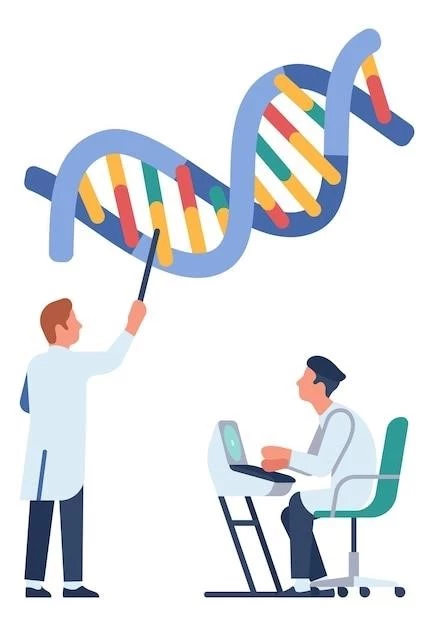Overview of Prolidase Deficiency
Prolidase deficiency is a rare autosomal recessive disorder characterized by skin lesions, recurrent infections, and intellectual disability․
Prolidase deficiency is a rare autosomal recessive disorder characterized by severe skin lesions, recurrent infections, intellectual disability, and organomegaly․ The condition results from mutations in the PEPD gene, affecting the prolidase enzyme responsible for cleaving imide bonds in proline-containing dipeptides․ This deficiency leads to a range of symptoms, including dysmorphic facial features, delayed development, and immune dysregulation․ Individuals with prolidase deficiency may exhibit unique skin ulcers, autoimmune features, and metabolic abnormalities attributed to impaired collagen metabolism․
Definition and Characteristics
Prolidase deficiency is a rare autosomal recessive disorder characterized by skin lesions, recurrent infections, intellectual disability, and organomegaly due to mutations in the PEPD gene․
Prolidase deficiency results from mutations in the PEPD gene that encodes the prolidase enzyme․ These mutations lead to impaired cleavage of proline-containing dipeptides, affecting collagen metabolism and resulting in a range of clinical manifestations․
Autosomal Recessive Inheritance Pattern
Prolidase deficiency follows an autosomal recessive inheritance pattern, meaning that an individual must inherit two copies of the mutated PEPD gene, one from each parent, to develop the condition․ Carriers of a single mutated gene are typically asymptomatic but can pass the gene on to their offspring․ This genetic basis highlights the importance of genetic testing in families with a history of prolidase deficiency to assess the risk of passing on the condition․
Prolidase deficiency stems from mutations in the PEPD gene, affecting the prolidase enzyme crucial for processing proline-containing dipeptides․ These mutations disrupt collagen metabolism, leading to the manifestation of various clinical features․
Symptoms in Infancy and Childhood
Initial symptoms of prolidase deficiency may present during infancy and childhood and can include splenomegaly, dysmorphic facial features, skin ulcers, recurrent infections, and developmental delays․ These manifestations, such as diarrhea, vomiting, and dehydration, may aid in the early identification of the condition․ Additionally, unusual facial characteristics like proptosis, flat nasal bridge, and thin vermilion of the upper lip might become apparent during childhood․
Common Manifestations⁚ Skin Lesions, Recurrent Infections, Intellectual Disability
Prolidase deficiency commonly presents with severe, chronic, and painful skin ulcers on lower extremities, facial telangiectasias, recurrent skin and respiratory infections, varied intellectual disability levels, and organomegaly with a focus on splenomegaly․ This rare autosomal recessive disorder impacts collagen metabolism, resulting in a multifaceted clinical profile that includes skin manifestations, immune dysfunction, and cognitive impairments․
Prolidase Enzyme and PEPD Gene Mutations
Prolidase deficiency is caused by mutations in the PEPD gene, which encodes the prolidase enzyme essential for processing proline-containing dipeptides․ These gene alterations disrupt normal enzyme function, leading to the characteristic symptoms of the disorder․
Diagnosing prolidase deficiency involves genetic testing to identify mutations in the PEPD gene and enzyme activity assays to measure the function of the prolidase enzyme․ Genetic testing helps confirm the presence of pathogenic variants that lead to the characteristic symptoms of the disorder, while enzyme activity assays provide insights into the functional impact of these mutations on prolidase activity․
Identification through Genetic Testing and Enzyme Activity Assays
Diagnosis of prolidase deficiency involves genetic testing to detect mutations in the PEPD gene and enzyme activity assays to assess prolidase functionality․ These tests help confirm the underlying genetic cause and enzyme dysfunction associated with the condition․
The treatment approach for prolidase deficiency focuses on managing symptoms and providing comprehensive care through a multidisciplinary team․ This may involve addressing skin lesions, recurrent infections, intellectual disability, and organomegaly, emphasizing a holistic approach to patient management․
Symptomatic Management and Multidisciplinary Care
Patients with prolidase deficiency require a comprehensive treatment approach focusing on managing symptoms and providing specialized care through a multidisciplinary team․ By addressing skin lesions, recurrent infections, intellectual disability, and organomegaly, healthcare professionals can improve the quality of life for individuals affected by this rare condition․
Prolidase deficiency can have significant implications for long-term health and quality of life due to its multisystem involvement․ The condition’s impact on collagen metabolism, immune function, and organ systems can lead to chronic skin issues, recurrent infections, intellectual disabilities, and other complications that influence the overall well-being and life quality of affected individuals․ Managing these aspects through comprehensive care and support can help improve outcomes and enhance the quality of life for those living with prolidase deficiency․
Impact on Long-Term Health and Quality of Life
Prolidase deficiency can have a profound impact on long-term health and quality of life due to its multisystem effects, affecting collagen metabolism, immune function, and various organ systems․ The disorder’s chronic nature and diverse clinical manifestations can significantly influence overall well-being and daily functioning, underscoring the importance of comprehensive management strategies to enhance the quality of life for individuals living with prolidase deficiency․
Ongoing research on prolidase deficiency focuses on exploring potential therapeutic interventions to address the multisystem effects of the condition․ Studies are investigating novel treatment approaches targeting collagen metabolism, immune dysfunction, and organ involvement to improve outcomes and quality of life for individuals affected by this rare disorder․
Current Studies on Prolidase Deficiency and Potential Therapies
Researchers are currently investigating potential therapeutic approaches for prolidase deficiency to address the diverse symptoms associated with the disorder․ Studies focus on developing targeted therapies that can improve outcomes and quality of life for individuals affected by this rare condition․
For individuals affected by prolidase deficiency, accessing information centers and specialized assistance can provide valuable resources and support․ These centers offer guidance, education, and assistance tailored to the unique needs of individuals living with this rare metabolic disorder, ensuring comprehensive care and management․

Case Studies and Clinical Reports
For individuals affected by prolidase deficiency, information centers and specialist assistance offer valuable support tailored to the unique needs of those living with this rare metabolic disorder․
Information Centers and Specialist Assistance
Accessing information centers and seeking specialist assistance can provide crucial support and guidance for individuals and families affected by prolidase deficiency․ These resources offer tailored information, expert advice, and a supportive network to help navigate the complexities of managing this rare metabolic disorder․
Interactions with Other Medical Conditions
Prolidase deficiency, a rare metabolic disorder, can impact various organs and tissues resulting in skin lesions, recurrent infections, unusual facial features, intellectual disability, and organomegaly․ The disorder’s complex nature may lead to interactions with other medical conditions, potentially affecting treatment strategies and outcomes for individuals with co-existing health issues․
Collagen Metabolism and Connective Tissue Disorders
Prolidase deficiency, a rare autosomal recessive disorder, impacts collagen metabolism and connective tissues, leading to a wide array of clinical manifestations affecting various organ systems․ The dysregulation in collagen metabolism contributes to the pathogenesis of skin lesions, recurrent infections, intellectual disability, splenomegaly, and other connective tissue-related symptoms observed in individuals with this condition․ The intricate relationship between prolidase deficiency and collagen metabolism underscores the complexity of managing the disorder and its implications for overall health․

Prevention and Genetic Counseling
Prolidase deficiency, an autosomal recessive disorder, can be managed through genetic counseling to assess risks and guide preventive measures for affected individuals and their families․
Educational Initiatives for Families and Healthcare Providers
Educational programs are essential for families and healthcare providers to enhance understanding of prolidase deficiency․ These initiatives aim to provide knowledge on disease management, genetic implications, and support strategies for affected individuals and their caregivers․ By promoting awareness and education, these programs contribute to improved care and outcomes for individuals with this rare metabolic disorder․
Public Awareness and Advocacy
Raising awareness about rare metabolic disorders like Prolidase deficiency is crucial for promoting early diagnosis, access to specialized care, and ongoing research initiatives․ Advocacy efforts aim to improve support systems, advance treatment options, and enhance the quality of life for individuals and families affected by this condition․
Raising Awareness about Rare Metabolic Disorders like Prolidase Deficiency
Educational initiatives and public advocacy play a crucial role in raising awareness about rare metabolic disorders like Prolidase deficiency․ By increasing knowledge among the general population, healthcare providers, and policymakers, these efforts aim to enhance early detection, improve access to specialized care, and support ongoing research to advance treatment options and outcomes for individuals affected by such rare conditions․
